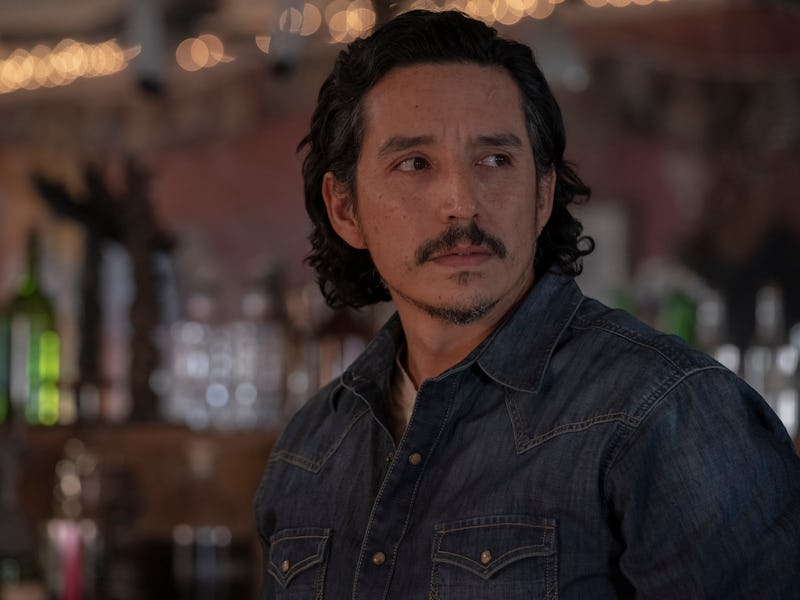Last of Us Episode 6 Just Subverted a Common Post-Apocalyptic Trope
An idyllic community means a harsh (yet hilarious) truth for Tommy.

The trip to Tommy’s settlement in Jackson is a point of respite for Joel and Ellie in both The Last of Us game and the series. The two are able to take a breath, shower, get warm coats for the winter, and talk about future plans. In the series, this means a long talk between Joel and Tommy. Tommy tells Joel he can’t replace him for the rest of Ellie’s trek to the Fireflies — he has a good life here in Jackson, with his wife Maria and a baby on the way.
But that “good life” includes a grim truth for Tommy that’s revealed in one of the episode’s smallest but most powerful moments, revealing an important trait of basically any post-apocalyptic story.
When Joel and Ellie are given a tour of Jackson by Maria and Tommy, they see how there’s just about everything one could need to survive. Ellie asks if Maria’s in charge, and she replies that she’s a democratically elected member of a council. “Everyone pitches in, we rotate patrols, food prep, repairs, hunting, harvesting.” Tommy adds that everything they see is completely shared with collective ownership.
“So, Communism?” Joel deadpans. Tommy is quick to dismiss it. But Maria surprisingly agrees with Joel. “It is like that, literally,” she says. “This is a commune. We’re communists.”
Maria openly embraces the fact she’s a communist, but her husband Tommy doesn’t realize it at all.
It’s enough to stop Tommy in his tracks. He didn’t realize the community he’s built that aims to serve as many people as possible was communism — he thought it was just the best way to provide for survivors.
The “accidental communism” trope this scene highlights is all over post-apocalyptic media. If you are in a world devoid of any infrastructure, your first thought isn’t the “every man for himself” ideals of capitalism, but the sharing and rationing of community-based survival. From Lost dealing with rationing food to Dark’s post-apocalyptic alternate universe, there are plenty of takes on this.
A perfect example is Netflix’s The Society, where a group of teens returns from a field trip to find their town abandoned. They initially just try a laissez-faire approach to resource management, but quickly realize the best way to keep themselves safe is to join together and help out. To quote the jock, Jason, “What if we like, didn’t… take stuff? Like food or whatever? Wouldn’t be the worst thing in the world, right? Sharing? It could be like… socialism. There’s no “I” in team, right?”
Tommy’s past in construction (work he now does in Jackson) may have tainted his view of communism, but it’s really the best option.
But The Last of Us “lampshades” this trope — it calls even more attention to it. Tommy’s hard-working contractor personality was born and bred in capitalism, and he, like Joel, grew up in the South in the 80s. They would have been inundated with fearmongering of communism and socialism.
But while communism’s track record is iffy in our world, in a world overrun with Infected there’s no room for the free market. Even Fedra’s operation now is a version of socialism with its system of rations and military schooling. But Jackson is the idyllic example of how communism would work with the perfect circumstances and an unwitting leader — a slice of the old life in a world mostly devoid of life altogether.
New episodes of The Last of Us air Sundays on HBO.